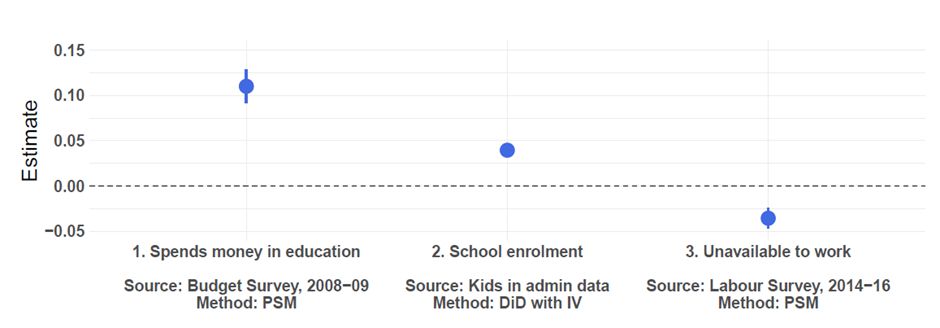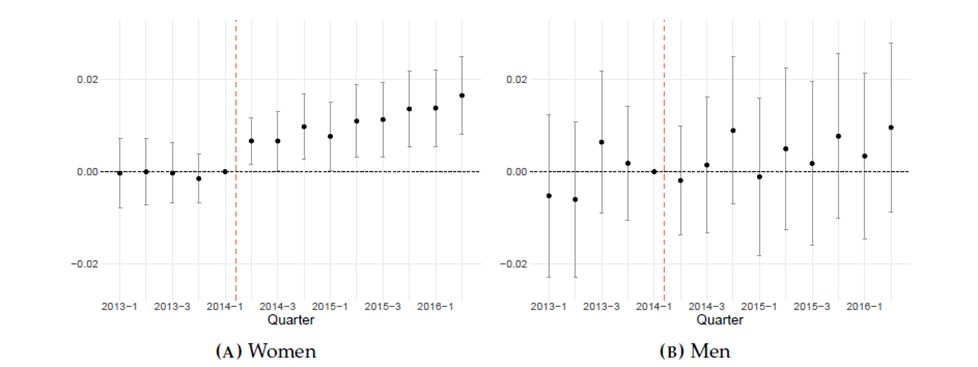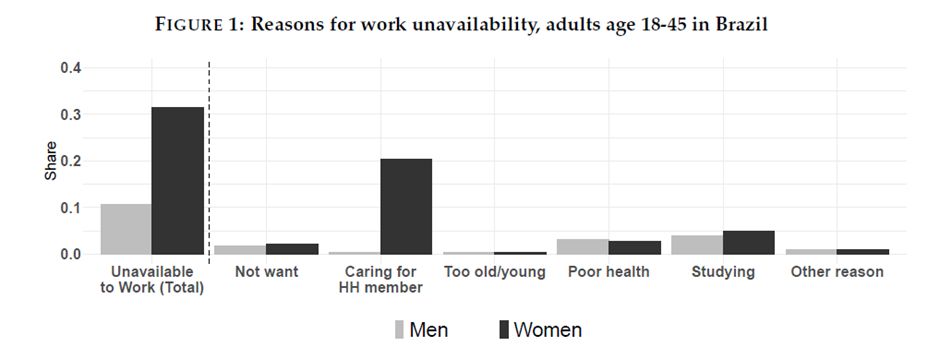
Website: https://www.gleitemariante.com/
(He/him, Ele/dele)






In Brazil, there is a clear gender divide in these constraints: women are 3x more likely to report being unavailable to work than men, overwhelmingly due to caring duties (3/13)

In Brazil, there is a clear gender divide in these constraints: women are 3x more likely to report being unavailable to work than men, overwhelmingly due to caring duties (3/13)

